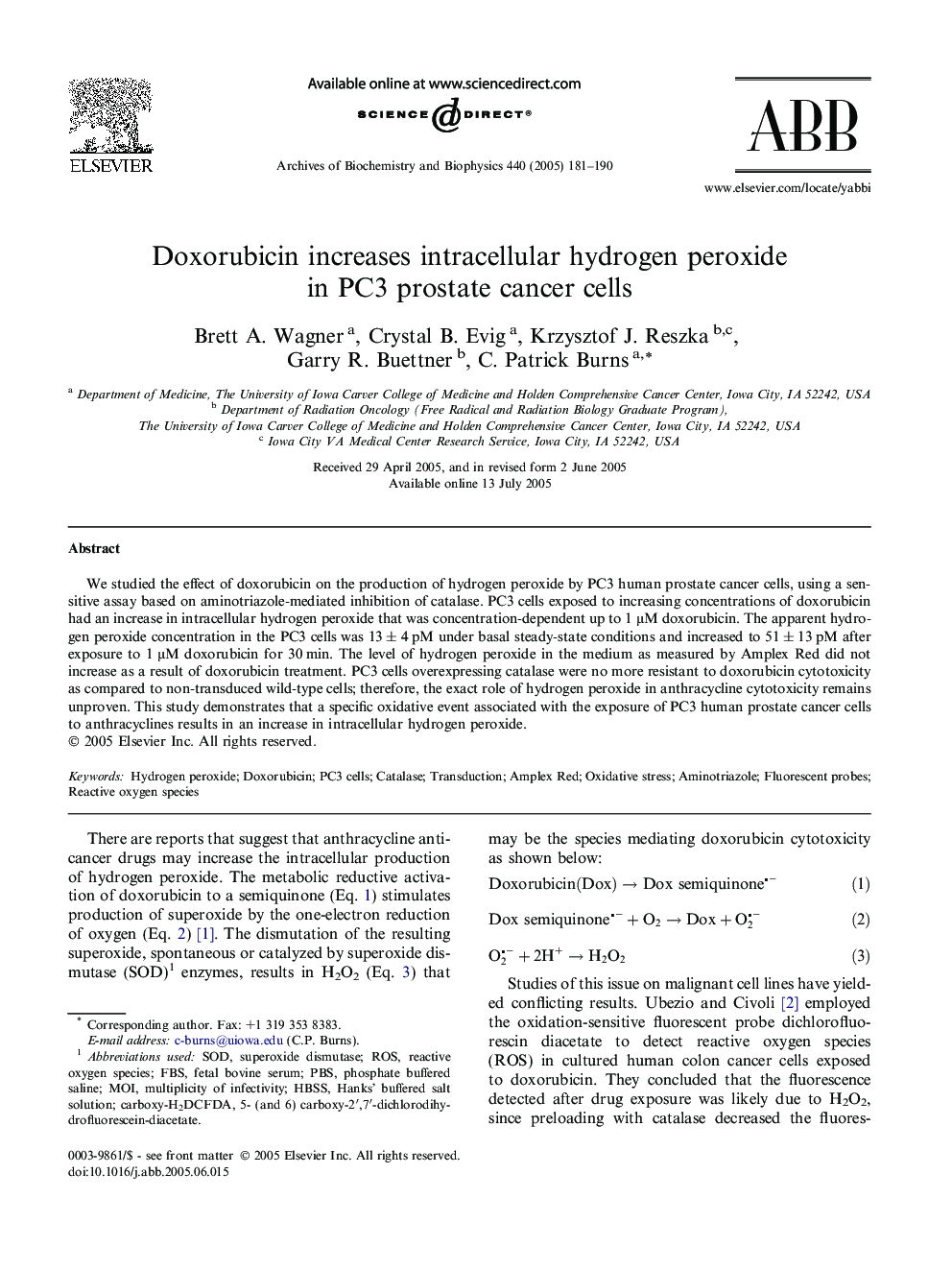| Article ID | Journal | Published Year | Pages | File Type |
|---|---|---|---|---|
| 9882148 | Archives of Biochemistry and Biophysics | 2005 | 10 Pages |
Abstract
We studied the effect of doxorubicin on the production of hydrogen peroxide by PC3 human prostate cancer cells, using a sensitive assay based on aminotriazole-mediated inhibition of catalase. PC3 cells exposed to increasing concentrations of doxorubicin had an increase in intracellular hydrogen peroxide that was concentration-dependent up to 1 μM doxorubicin. The apparent hydrogen peroxide concentration in the PC3 cells was 13 ± 4 pM under basal steady-state conditions and increased to 51 ± 13 pM after exposure to 1 μM doxorubicin for 30 min. The level of hydrogen peroxide in the medium as measured by Amplex Red did not increase as a result of doxorubicin treatment. PC3 cells overexpressing catalase were no more resistant to doxorubicin cytotoxicity as compared to non-transduced wild-type cells; therefore, the exact role of hydrogen peroxide in anthracycline cytotoxicity remains unproven. This study demonstrates that a specific oxidative event associated with the exposure of PC3 human prostate cancer cells to anthracyclines results in an increase in intracellular hydrogen peroxide.
Keywords
Related Topics
Life Sciences
Biochemistry, Genetics and Molecular Biology
Biochemistry
Authors
Brett A. Wagner, Crystal B. Evig, Krzysztof J. Reszka, Garry R. Buettner, C. Patrick Burns,
